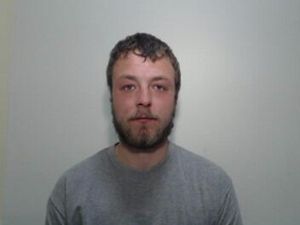Silent Crime: Jess Phillips speaks out on the ‘Cinderella’ of crimes as Raneem’s Law is set to transform police domestic abuse investigations
Safeguarding minister and Birmingham MP Jess Phillips has described domestic abuse as the “Cinderella” of crimes, suggesting it has previously not been prioritised.
Watch more of our videos on ShotsTV.com
and on Freeview 262 or Freely 565
This comes as the Government outlines plans to embed domestic abuse specialist teams in police forces’ 999 control rooms early next year, to stop emergency services missing opportunities to save women’s lives.
The move is part of Raneem’s Law to transform the way the police handle cases of violence against women and girls following issues at West Midlands Police.
It has been announced as the Express and Star, along with sister NationalWorld newspapers and websites, launches a campaign against Silent Crime - the relentless daily criminality across the country to give victims of violence, thefts and anti-social behaviour a voice. You can read more about our campaign below.
In 2018, Raneem Oudeh and her mother Khaola Saleem, from Solihull, were murdered by Raneem’s ex-partner. Four years later, an inquest found mistakes made by West Midlands Police had “materially contributed” to their deaths.
On the night they were killed, Ms Oudeh had called West Midlands Police four times to register concerns for her safety, and the force had previously responded to 10 domestic abuse incidents linked to the case.
Five officers were disciplined over the failures.
Ms Phillips said she wants to do more than give domestic abuse victims “a good call”, and said the pilot scheme would act as part of an ambition to prevent domestic abuse from happening in the first place.
“I don’t want to just give somebody who’s taken a beating a good call. I want them not to take that beating in the first place,” Ms Phillips told Sky News.
She added: “We have to stop this happening in the first place, and the Government has a mission to halve the incidences of violence against women and girls in a decade.
“And so much of that work is going to have to be about the prevention of perpetration, the changing of attitudes around healthy relationships within education, this is a mission that is going to take every Government department.”
Ms Phillips said she is in talks with the National Police Chiefs’ Council (NPCC) to determine how many stations will be included in the pilot, which is expected to start in early 2025.

Elsewhere, the minister said police officers were pleased to see the new Labour Government responding to the “national emergency”.
Speaking to Times Radio, she said: “Domestic abuse and violence against women and girls has always been the Cinderella.
“And actually working with police over the last couple of weeks, I think for the first time I am noticing how much they recognise there is a national emergency, a total national emergency, and they are, I have to say, quite delighted that the Government is putting quite so much priority into it.
“And so we will work with police forces across the country and from the centre to make sure that when we are asking them to do things, that can be delivered safely and reasonably.
“I’m not going to do what the last government did, where they just announced a load of things that then meant nothing changed on the ground, literally nothing.”
Raneem’s aunt, Nour Norris, said those calling the police for help “need to be given the opportunity to be saved”.
Ms Norris said her sister and niece “tried their best to be here today” but “the system failed”.
She said: “No-one should really have to suffer what Raneem suffered.
“Trying to explain herself, trying to put an administration order in place for herself … trying to do whatever it takes to be heard, and she was still not heard until she lost her life.
“My sister lost her life because she was doing the job of the police – doing the sacrificing for mother and daughter.”
Ms Norris joined Home Secretary Yvette Cooper and Ms Phillips to meet 999 control handlers during a visit to Kent Police’s Coldharbour Police Complex in Aylesford, Kent, on Thursday.
Ms Cooper said: “What we’ve seen is if there is proper domestic abuse expertise, it means that you can get the right response to the calls that come in and proper understanding of the seriousness of domestic abuse as a crime and how lives are at risk, in the most serious cases, as we saw in the awful case where Raneem and her mother Khaola lost their lives because the police didn’t respond to a 999 call.
“We cannot let that happen, and that’s why we want to make sure that we’ve got that expertise that we need in 999 control rooms across the country.”

The epidemic of Silent Crime
6,300 crimes go unsolved every day in Britain, according to latest Home Office figures.
The government data also shows that two million crimes went unsolved in a single year in the UK, while offences like knife crime and shoplifting soared in the same set of statistics.
The relentless daily criminality has promoted the Shropshire Star along with its parent company, NationalWorld and sister websites and newspapers across the country, to launch a campaign to give victims of the violence, thefts and anti social - that so often go underreported - a voice.
We are calling this epidemic Silent Crime.
Research shows that we only bother to tell police about four out of ten crimes. Add those two figures together and it is clear that the vast majority happen with absolutely no repercussions. And so they continue.
We want you to tell us incidents that have happened to you, your family or your friends in your neighbourhood; how it impacted you and what justice was served - or not.
Why don't we report every crime and why isn't the criminal justice system better at making criminals pay? It would seem to me that faith in the systems that should keep us safe is at rock bottom.
Most of this isn't the police's fault, a lot comes down to a social care system that has collapsed and politicians who have turned a blind eye for decades. That doesn't mean that urgent action couldn't and shouldn't be taken. It doesn't have to be this way.
To force change, we need to unite and remind ourselves that these 'little' crimes are not acceptable. You should be safe and feel safe at work, at home, in the park and in our own neighbourhoods. We need you to tell us your stories and we, on your behalf, will take them to Downing Street. We need to stop being silent and we need you to help us.
Join our Silent Crime Survey across the Black Country, Staffordshire and Wyre Forest





